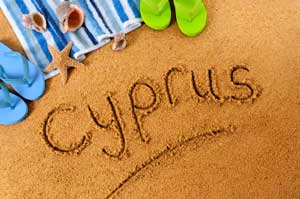Cyprus is the latest is the latest place in the sun to entice high net worth expats to move home.
Wealthy expats have an open invitation to fast track a permanent residence permit – providing they meet some financial conditions.
The first step is buying a home in Cyprus as their main residence worth at least €300,000 any claims for social security.
They must also show:
- That they have medical insurance covers living in in Cyprus
- That they do not pose a threat to public order or public security
- That if they have been living in Cyprus they have been doing so legally
The residence scheme is open to wealthy expats of any age – and includes partners and children.
However, the right to residence is lost if the person is absent from Cyprus for two years or more.
The quick permanent residency scheme is aimed at third party nationals – those from outside the European Union and at Russians in particular.
Junked bonds
Cyprus and Russia have firm economic ties – starting with a €2.5 billion loan at the start of 2012 from Russia.
The Cypriot government is also keen to seek more money from Moscow as a belief in the Greek economy eventually coming good soured and threatened to take Cyprus down with Athens.
Over recent years, Cyprus invested heavily in Greek government bonds that are now junked by other economies.
Meanwhile, visitors to Cyprus, and the biggest city, Limassol, cannot fail to notice specialist Russian food stores, restaurants, shops selling fur coats and signs in Cyrillic script dominating the beaches and roadsides.
Cyprus likes to cash in on the booming tourist trade with Russia – and has a resident population of an estimated 40,000 Russians.
Love and money
At the bottom of the love affair is money. Cyprus has a 10% corporation tax rate and many Russian companies are based on the island for this reason alone. Taking a European Union bailout would see pressure to raise taxes to balance the books – but Russia is ready to throw more roubles at Nicosia to maintain the status quo.
Hubert Faustmann, professor of history and international relations at Nicosia University, sheds some more light on the Russian question in an interview with the BBC.
“The Russian business elite are using Cyprus extensively for financial transactions and as a tax haven and they surely do not want to lose those facets,” he said..
“A lot of Russian cash is invested in Cyprus and then goes back to Russia.
“There is an important political relationship, too, given that Russia functions as the protector of the Greek Cypriots in the United Nations Security Council,” said the professor.
